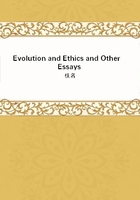
第46章
Obviously, if you possess that for which men will give labour, you can aid production by means of that labour. And, again, it agrees with the first definition (borrowed from Adam Smith) that capital is "that part of a man's stock which he expects to yield him a revenue." For a revenue is both etymologically and in sense a "return." A man gives his labour in sowing grain, or in tending cattle, because he expects a "return"--a "revenue"--in the shape of the increase of the grain or of the herd; and also, in the latter case, in the shape of their labour and manure which "aid the production" of such increase. The grain and cattle of which he is possessed immediately after harvest is his capital; and his revenue for the twelvemonth, until the next harvest, is the surplus of grain and cattle over and above the amount with which he started. This is disposable for any purpose for which he may desire to use it, leaving him just as well off as he was at the beginning of the year. Whether the man keeps the surplus grain for sowing more land, and the surplus cattle for occupying more pasture; whether he exchanges them for other commodities, such as the use of the land (as rent); or labour (as wages); or whether he feeds himself and his family, in no way alters their nature as revenue, or affects the fact that this revenue is merely disposable capital.
That (even apart from etymology) cattle are typical examples of capital cannot be denied ("Progress and Poverty," and if we seek for that particular quality of cattle which makes them "capital," neither has the author of "Progress and Poverty" supplied, nor is any one else very likely to supply, a better account of the matter than Adam Smith has done. Cattle are "capital" because they are "stock which yields revenue." That is to say, they afford to their owner a supply of that which he desires to possess. And, in this particular case, the "revenue" is not only desirable, but of supreme importance, inasmuch as it is capable of maintaining human life. The herd yields a revenue of food-stuffs as milk and meat; a revenue of skins; a revenue of manure; a revenue of labour; a revenue of exchangeable commodities in the shape of these things, as well as in that of live cattle. In each and all of these capacities cattle are capital; and, conversely, things which possess any or all of these capacities are capital.
Therefore what we find at page 25 of "Progress and Poverty" must be regarded as a welcome lapse into clearness of apprehension:-,"A fertile field, a rich vein of ore, a falling stream which supplies power, may give the possessor advantages equivalent to the possession of capital; but to class such things as capital would be to put an end to the distinction between land and capital."
Just so. But the fatal truth is that these things are capital; and that there really is no fundamental distinction between land and capital. Is it denied that a fertile field, a rich vein of ore, or a falling stream, may form part of a man's stock, and that, if they do, they are capable of yielding revenue? Will not somebody pay a share of the produce in kind, or in money, for the privilege of cultivating the first royalties for that of working the second; and a like equivalent for that of erecting a mill on the third? In what sense, then, are these things less "capital" than the buildings and tools which on page 27 of "Progress and Poverty" are admitted to be capital? Is it not plain that if these things confer "advantages equivalent to the possession of capital," and if the "advantage" of capital is nothing but the yielding of revenue, then the denial that they are capital is merely a roundabout way of self-contradiction?
All this confused talk about capital, however, is lucidity itself compared with the exposition of the remarkable thesis, "Wages not drawn from capital, but produced by labour," which occupies the third chapter of "Progress and Poverty."
"If, for instance, I devote my labour to gathering birds' eggs or picking wild berries, the eggs or berries I thus get are my wages. Surely no one will contend that, in such a case, wages are drawn from capital. There is no capital in the case" .
Nevertheless, those who have followed what has been said in the first part of this essay surely neither will, nor can, have any hesitation about substantially adopting the challenged contention, though they may possibly have qualms as to the propriety of the use of the term "wages."They will have no difficulty in apprehending the fact that birds' eggs and berries are stores of foodstuffs, or vital capital; that the man who devotes his labour to getting them does so at the expense of his personal vital capital; and that, if the eggs and the berries are "wages" for his work, they are so because they enable him to restore to his organism the vital capital which he has consumed in doing the work of collection. So that there is really a great deal of "capital in the case."
Not merely on the grounds stated below, but on the strength of Mr. George's own definition. Does the gatherer of eggs, or berries, produce them by his labour? If so, what do the hens and the bushes do?
Our author proceeds:-,"An absolutely naked man, thrown on an island where no human being has before trod, may gather birds' eggs or pick berries" .
No doubt. But those who have followed my argument thus far will be aware that a man's vital capital does not reside in his clothes; and, therefore, they will probably fail, as completely as I do, to discover the relevancy of the statement.